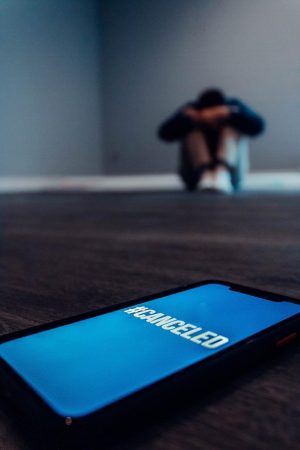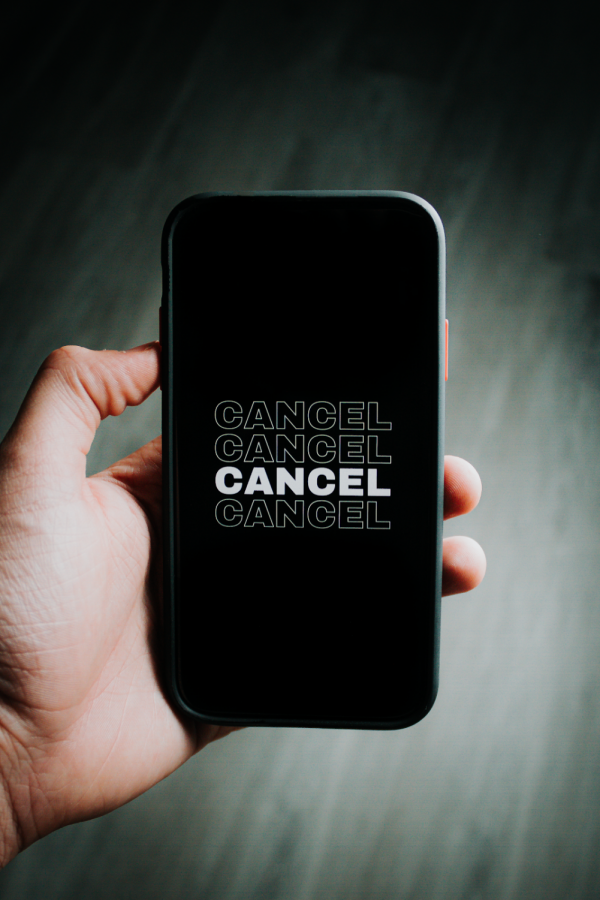Escalation of Cancel Culture
Since the rise of social media, we have seen the emergence of thousands of content creators, from makeup artists to singers, vloggers, artists, and many more. However, for many of these people, we have seen them fall to cancel culture. Cancel culture gained prominence towards the late 2010s and has become ingrained in social media consumer culture—it has also become influencers’ greatest fear.
So—what is it?
Cancel culture is when a celebrity or influencer does something “problematic.” Internet users typically uncover something controversial an influencer has done in the past, and it becomes public to the people on social media. Currently, there are over three billion users on social media. Therefore, when problematic behavior becomes public, platforms like TikTok, Instagram, and Twitter erupt in conversations, insults, pictures, or videos surrounding the influencer’s behavior. Trends arise from users’ use of hashtags like #XPersonisoverparty, or #CancelXperson. These hashtags, along with the intense, accumulative culture of hate created on social media, often destroy people’s reputations and careers.
A few prominent examples of people having been canceled in past years include Shane Dawson (Youtuber), canceled for past racist videos; David Dobrik (Vlog Youtuber), canceled for alleged sexual assault and bullying patterns in his past videos; J.K. Rowling (author) canceled for tweeting anti-transgender statements.
So—how does cancel culture impact society?
There are approximately 3.96 billion people on the platforms on social media, and we’ve seen celebrities condemn or at times worry about cancel culture. For example, Sharon Osborne has recently left “The Talk” after being exposed for saying racial slurs. Her response about cancel culture was worrying about the insinuation of it. Jim Jordan, an Ohio Representative, called a House Judiciary hearing about cancel culture and referred to it as a wave of censorship in this country.
Good Counsel World History teacher Ms. Guidara offered her insight: “Cancel culture is an interesting new topic that has become more and more popular over the past months. We seem to use it in everyday conversation almost, whether we are discussing books, music, movies, celebrities, politicians, etc. With the seemingly ever-changing flow of our lives, I think that it is always good to look towards the future to a more modern and accepting world and not backward. However, speaking as a Social Studies teacher whose job is to teach the past from multiple perspectives so that we can learn, grow, and avoid repeating negative aspects of the past, it seems that certain things could be harmful to “cancel.”
Ms. Guidara is not alone in her opinion—many also believe that cancel culture is toxic and not rehabilitative. We still need to hold people—especially people with large platforms and outreach—accountable for their actions. Doing it in a harmful way doesn’t solve the issue or encourage change and reflection; it instead adds fuel to the fire and promotes further hate, ridicule, and toxicity. Being more mature in handling the controversy of a celebrity or influencer may lead to a more welcoming, positive place on the internet.

With that being said, people should be held accountable for their actions; we’ve seen countless controversies in influencers’ pasts regarding serious topics from racism to homophobia. However, combating hate with education is better than combating hate with more hate in the long term. Yet cancel culture has been integral in modern media for years. Though we don’t know whether or not it will ever go away, it only goes to show the influence of the everyday social media user and the sheer power of the internet. Cancel culture’s pattern of holding people accountable isn’t right because people never face the consequences. Instead, real repercussions should be made so that people can deal with the results of their actions in a more reasonable way.
Sources:
https://www.cnn.com/2021/03/07/us/cancel-culture-accountability-reality-trnd/index.html


